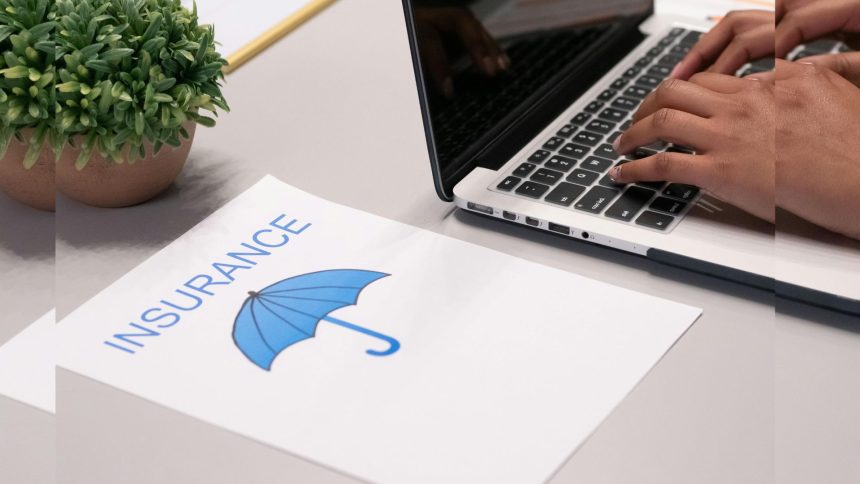is a critical component of financial planning, providing a safety net against unexpected events and uncertainties. There are various types of insurance available, each designed to protect different aspects of your life, health, property, and business. Here’s an overview of the most common types of insurance you can get:
1. Health Insurance
Health insurance covers medical expenses, including hospital visits, surgeries, prescription drugs, and preventive care:– Individual and Family Plans:
These plans cover medical costs for individuals or families.
– Employer-Sponsored Plans: Many employers offer health insurance as part of their benefits package.
– Government Programs: Medicare, Medicaid, and the Children’s Health Insurance Program (CHIP) provide health coverage to eligible individuals.
SPONSORED
2. Life Insurance
Life insurance provides financial support to your beneficiaries in the event of your death:
– Term Life Insurance: Offers coverage for a specific period, such as 10, 20, or 30 years. It pays a death benefit if the policyholder dies within the term.
– Whole Life Insurance: Provides lifetime coverage and includes a savings component, accumulating cash value over time.
– Universal Life Insurance: A flexible policy that combines death benefit protection with a savings element, allowing for adjustments in premiums and coverage.
3. Auto Insurance
Auto insurance protects you financially in case of accidents, theft, or damage to your vehicle:
– Liability Coverage: Covers damages to others if you are at fault in an accident.
– Collision Coverage: Pays for repairs to your vehicle after an accident.
– Comprehensive Coverage: Covers non-collision-related incidents, such as theft, vandalism, or natural disasters.
– Uninsured/Underinsured Motorist Coverage: Protects you if you are involved in an accident with a driver who has insufficient or no insurance.
4. Homeowners Insurance
Homeowners insurance protects your home and personal belongings from damage or loss:
-Dwelling Coverage: Pays for damage to the structure of your home.
– Personal Property Coverage: Covers your personal belongings inside the home.
– Liability Coverage: Protects you from legal responsibility if someone is injured on your property.
– Additional Living Expenses (ALE): Covers temporary housing and living expenses if your home becomes uninhabitable due to a covered event.
5. Renters Insurance
Renters insurance provides coverage for personal belongings and liability for individuals who rent their homes:
– Personal Property Coverage: Protects your belongings against theft, fire, and other perils.
– Liability Coverage: Covers legal costs if someone is injured in your rented home.
– Additional Living Expenses (ALE): Pays for temporary living costs if your rental becomes uninhabitable.
6. Disability Insurance
Disability insurance provides income replacement if you are unable to work due to illness or injury:
-Short-Term Disability Insurance: Covers a portion of your income for a short period, typically three to six months.
– Long-Term Disability Insurance: Provides income replacement for extended periods, often until retirement age, if you are permanently disabled.
7.Travel Insurance
Travel insurance covers unexpected events that can occur while traveling:
– Trip Cancellation/Interruption: Reimburses you for prepaid, non-refundable expenses if your trip is canceled or interrupted.
– Medical Coverage: Covers medical expenses incurred while traveling.
– Lost Luggage: Pays for lost or delayed baggage.
– Emergency Evacuation: Covers the cost of emergency transportation due to a medical condition or natural disaster.
8. Business Insurance
Business insurance protects companies from various risks and liabilities:
– General Liability Insurance: Covers legal expenses and damages if your business is sued for injury or property damage.
– Property Insurance: Protects your business property, including buildings, equipment, and inventory.
– Workers’ Compensation: Provides benefits to employees who are injured or become ill due to their job.
– Professional Liability Insurance: Also known as Errors and Omissions (E&O) insurance, it covers legal costs if your business is sued for professional mistakes or negligence.
Conclusion
Having the right insurance coverage is essential to safeguard against financial loss and provide peace of mind. Whether it’s protecting your health, life, property, or business, understanding the different types of insurance available can help you make informed decisions about the coverage you need. Evaluate your individual circumstances and consult with insurance professionals to ensure you have adequate protection for all aspects of your life.







